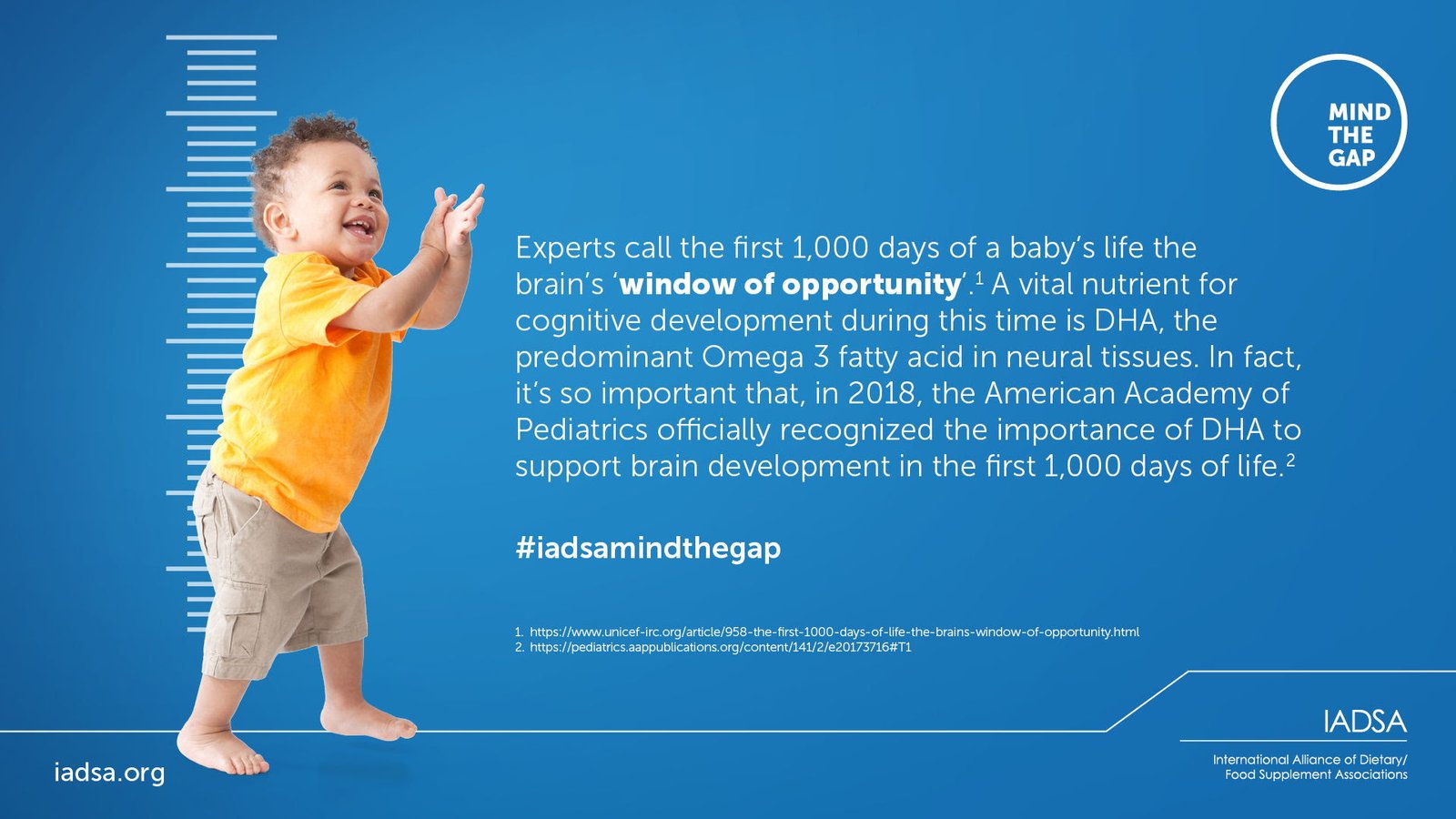Inside BENEO’s new pulse plant: pioneering sustainable protein from faba beans
Launches two new Mind the Gap resources
IADSA has launched two new Mind the Gap resources explaining the critical importance of Omega 3 and folic acid in maternal and infant nutrition. Based in London, IADSA is the international association of the food supplement sector, with members from six continents. IADSA is the global platform to guide the evolution of policy and regulation in the sector.
’Omega 3: The Making of You’ addresses a baby’s first 1,000 days of life, from conception to the age of two, which experts believe are the most important in our lives. It explores how DHA Omega 3 is vital at this stage for the development of the brain and eyes during pregnancy.
It also looks at the link between Omega 3 and a reduction in the risk of pre-term birth, which results in the death of one million babies every year. Scientific evidence is outlined showing that DHA supplementation during pregnancy can help to increase the length of gestation in women, especially those with low levels of Omega 3 in their diet. The new Omega 3 resource was created with support from GOED, the Global Organization for EPA and DHA Omega 3s, which is a member of IADSA.
Also new to Mind the Gap is ‘Folic Acid: The Best of Both Worlds’, which explores the benefits of a combined folic acid strategy that encompasses both fortification and supplements.
Scientists agree that consumption of sufficient folate before conception and during early pregnancy significantly lowers the risk of giving birth to a baby with an abnormality to the brain or spine – known as a neural tube defect (NTD).
However, a large proportion of pregnancies are unplanned, so many countries have put in place programmes to fortify foods with folic acid (the form of folate added to fortified foods and supplements). As a result, rates of NTDs have fallen. But more needs to be done, since globally there are still 18.6 NTD births per 10,000 livebirths.
The new Mind the Gap resource from IADSA highlights that in the USA, rates of NTDs are among the lowest in the world at just 5 per 10,000 livebirths. It explains how this can be attributed to America’s combined approach of both fortifying foods with folic acid and recommending that women of child-bearing age consume a folic acid supplement daily.

